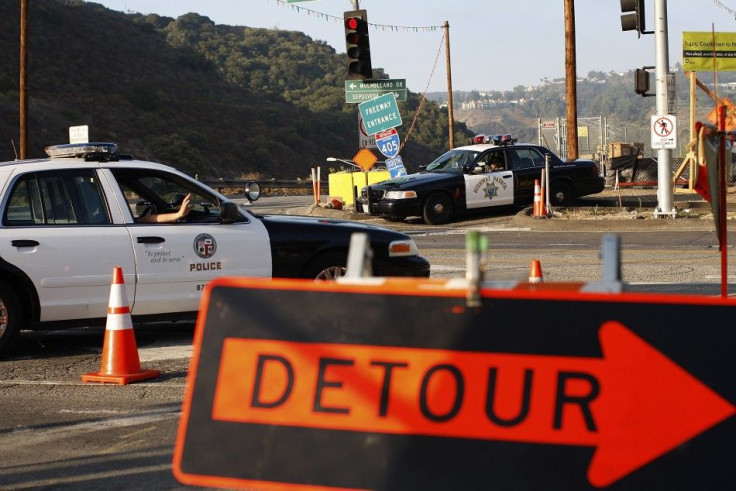Congress Passes Transportation Funding Stopgap

Congress has passed a stopgap transportation funding bill, ending a partisan stalemate that risked halting money that U.S. states are counting on to pay for updates to roads, bridges and other transit projects.
By agreeing on a 90-day extension of federal transportation funding, the House and the Senate averted a political debacle. But the short-term measure guarantees that the issue will resurface soon.
Transportation spending flows primarily from a federal gasoline tax, but the federal government's ability to collect and spend those tax dollars through the Highway Trust Fund would have expired on Sunday. The swiftly approaching deadline fueled the escalating standoff between the House and the Senate.
The Senate had passed a $109 billion bill that would cover two years of federal transportation funding, but Republican lawmakers in the House favored a temporary extension that would give both parties more time to agree on comprehensive legislation. Congress has relied on temporary extensions since 2009.
Democrats in the House and the Senate unified behind the Senate legislation and denounced a short-term extension, which Senate Majority Leader Harry Reid (D-NV) said he was disinclined to support. Democrats blamed Republicans for the impasse, given their refusal to get behind the Senate's bill.
This kind of cold-blooded political calculation, to use the jobs of American working people as political cannon fodder for your agenda to defeat the Obama administration, is outrageous, Rep. George Miller (D-Calif.) said during floor debate on Thursday, according to the Hill.
Neither party wanted to shoulder responsibility for a funding cutoff, and Republicans tried to portray Democrats as the ones blocking an agreement. Michael Steel, a spokesman for Speaker of the House John Boehner (R-OH), said Democrats were playing political games with our nation's economy by opposing a short-term extension.
In resisting calls to back the Senate bill, House Republicans cited concerns over how to pay for the legislation as the gasoline tax revenue has become insufficient to cover the cost. A five-year transportation bill still bottled up in the House would expand offshore oil drilling and use the associated royalties to help close the funding gap. Some Republicans in the House wanted legislation giving states more control over transportation programs.
That plan carried significant risks, because states rely on federal money to reimburse them for transportation projects, and Sen. Charles Schumer (D-N.Y.) urged Boehner in a Wednesday news conference to take the lifeboat of passing the Senate legislation before it's too late. But the Senate was ultimately forced to accede to the House's demands rather than accept a cutoff.
The Senate two-year bill can be a lifeboat for Speaker Boehner, Sen. Charles Schumer (D-N.Y.) said in a Wednesday news conference. He should take it before it's too late.
In addition to sustaining state-level economic activity, the transportation funding will help address America's infrastructure woes. Experts have cautioned that overused roads, deteriorating bridges and outdated sewer systems are badly in need of updates; in 2009, the American Society of Civil Engineers gave American infrastructure an overall D grade.
© Copyright IBTimes 2024. All rights reserved.




















